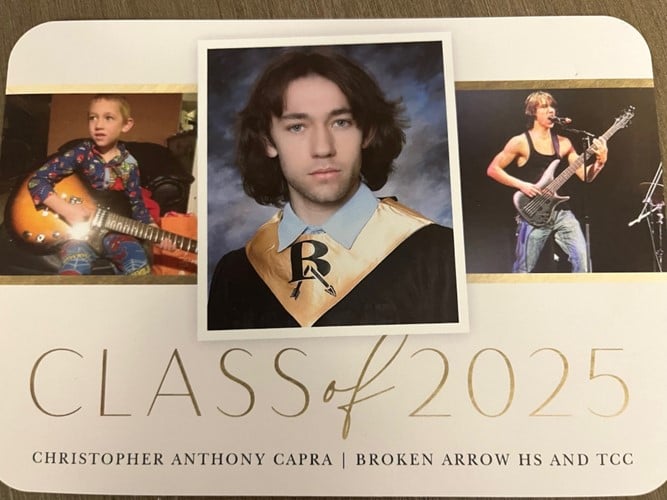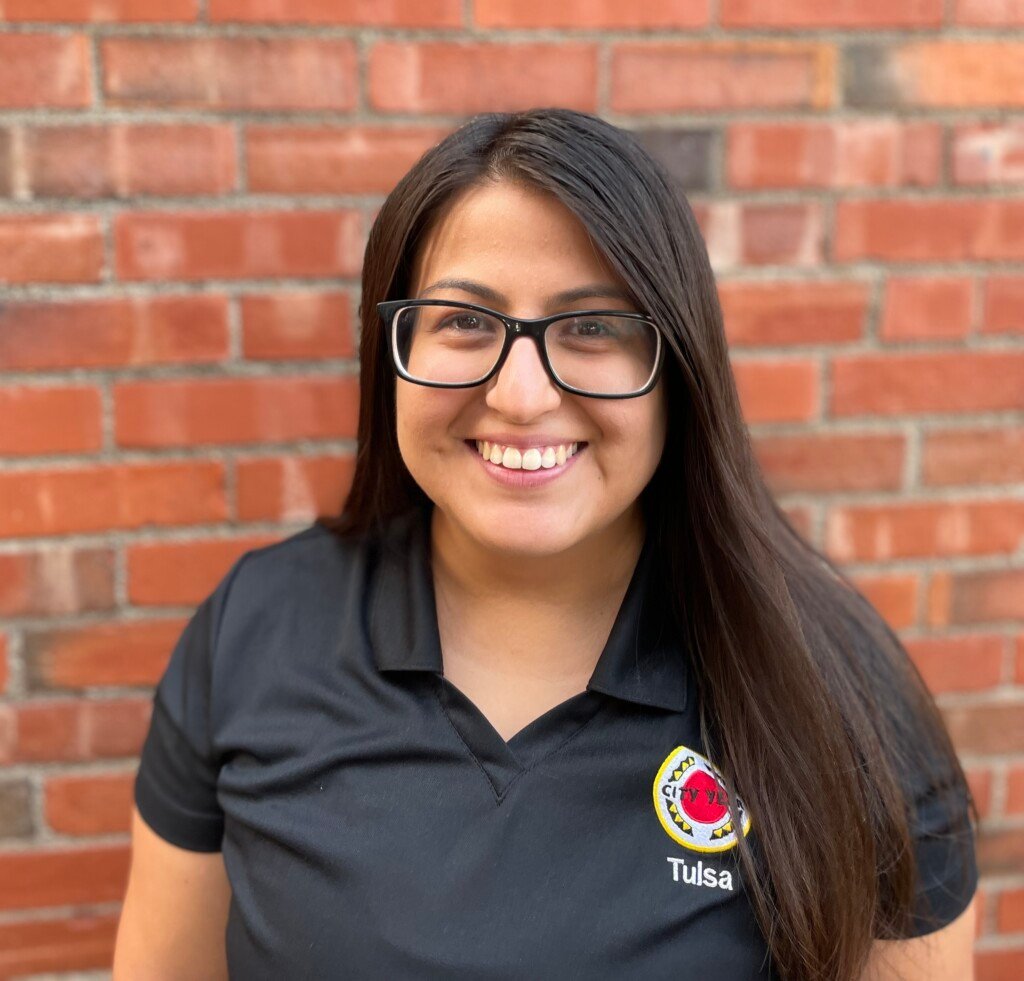Early College Programs Help High School Students Get a Head Start

Imagine graduating from high school and already having two years of college behind you.
For students enrolled in early college programs, that’s a remarkable reality. At age 18, Christopher Capra received three diplomas in May 2025.
Of course, he received his Broken Arrow High School diploma. Through the Broken Arrow Early College Academy, or ECA, Christopher also earned a liberal arts associate degree from Tulsa Community College. Additionally, he and nine other Broken Arrow ECA students participated in a Tulsa Technology Center partnership with Broken Arrow Public Schools. Chris earned a sound engineering certificate.
One of the biggest advantages of programs like Broken Arrow’s ECA is the money it saves families—two years’ worth of college tuition.
“The liberal arts associate degree is great,” said Christopher’s dad, Chris Capra. “The credits are transferable.”
Earn a Degree, Graduate Early
Broken Arrow isn’t the only local district offering students a chance to earn an associate degree. Several Tulsa Public Schools high schools – Will Rogers, Memorial and Tulsa McLain – Union High School, and Sand Springs High School participate in the EDGE program—Earn a Degree, Graduate Early.
EDGE allows eligible students to earn 60 college credits while still in high school. Students who complete the program graduate with both a high school diploma and an associate degree.
While Broken Arrow’s ECA takes place on the Northeastern State University campus, the EDGE program operates a bit differently, said Marla Robinson, director of college and career services at Union Public Schools. EDGE students take classes on the Union High School campus during their sophomore and junior years.
“They don’t go off campus until their senior year,” Robinson said. “TCC brings in instructors to our campus.”
EDGE is designed to foster first-generation college graduates.
“For these kids to do it early is a really big deal,” Robinson said. “They have to have the desire and work ethic.”
Self-motivation and self-advocacy
Julie Sunderland, principal of Broken Arrow’s ECA, said the students who thrive in the academy tend to be self-motivated.
“We want to attract … students who enjoy academics,” Sunderland said. “They like school, they like the learning process, they are motivated to work hard.”
ECA often attracts students who are goal-oriented and likeminded. Christopher Capra said one of his favorite aspects of the program was being surrounded by other “passionate people.”
“They all have passion and goals because they’re trying to go to college,” he said. “I’m surrounded by people who are actually getting their work done, so I’m motivated to get my work done and compete.”
Programs like ECA and EDGE teach students to manage college-level responsibilities early on. At ECA, students are taught by Broken Arrow High School teachers at Northeastern State University, but “they behave like college professors,” said Chris Capra, explaining that “They held him to assignments and didn’t hold his hand.”
Students are expected to email professors on their own with questions about grades or assignments.
“Your mom can’t email the professor,” Sunderland said. “These kids have to step up and take that responsibility.”
At Union, EDGE students are taught by TCC professors and learn self-advocacy skills.
“It’s OK for them to reach out when they need guidance,” Robinson said. “They learn how to communicate well with all the staff.”
Saving money on college tuition
Cost savings are another key benefit. Through ECA, the Oklahoma State Regents for Higher Education covers 12 credit hours for high school juniors and 18 hours for seniors. Broken Arrow Public Schools pays for the remaining 31 hours toward the associate degree.
“All families pay are the fees for those classes,” Sunderland said.
EDGE students graduate with a fully paid associate degree. Tuition, textbooks, transportation and other fees are covered by TCC and partnering school districts
“It’s a big help to families, especially if they aren’t sure how they’re going to pay for college,” Robinson said. “It provides benefits that can really impact a family’s trajectory in many ways.”
How to participate, and additional considerations
Both programs seek applications early—typically in eighth grade. There are no GPA requirements, but students must write an essay, provide a reference and then enter a lottery for selection.
Earning college credit in high school is a major commitment. Families should consider whether their student is ready.
“It is rigorous,” Sunderland said. “The expectations are high. It has to be that the kid wants it, too. It has to be something they’re motivated to be successful at.”
While the programs are demanding, students can still participate in extracurricular activities.
“If you want to be in band, I want you to be marching on Friday night,” Sunderland said. “We have lots of kids in sports, the band, in show choir. At some point, a kid has to decide, ‘What can I handle?’”
Robinson said students need to be realistic about their time.
“Time is a factor; taking college classes means you’ll need time to work on your courses,” she said. “You’ll have limits on the number of things you can do outside of school. You may not be able to work as many hours as you’ve done in the past.”
These programs often set students up to earn bachelor’s and even advanced degrees.
“A lot of my students realize they’re going to be in school for the long haul,” Sunderland said. “They’ll end up finishing up their master’s at the same time their peers will finish their bachelor’s.”
At Union, about 85 to 90 percent of EDGE students go on to attend a four-year college, Robinson said.
Christopher Capra is now pursuing a bachelor’s degree at the University of Central Oklahoma—with two years of college already complete.
Resources
Broken Arrow Early College Academy: baschools.org/o/eca
EDGE Program: tulsacc.edu/academics/dual-credit/edge-earn-degree-graduate-early



